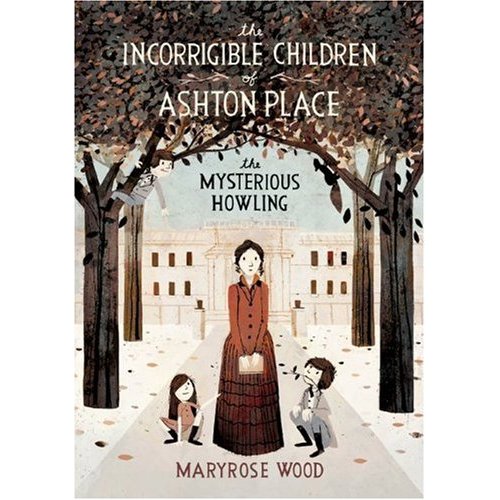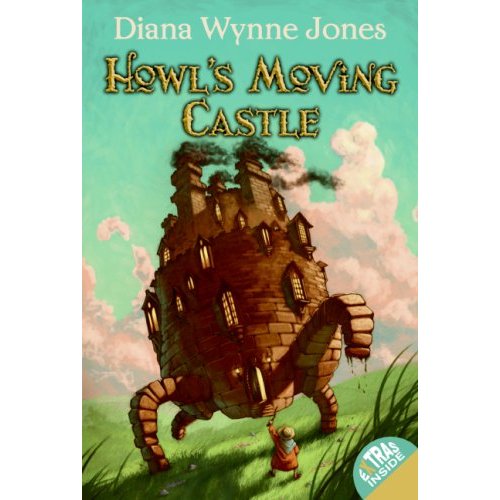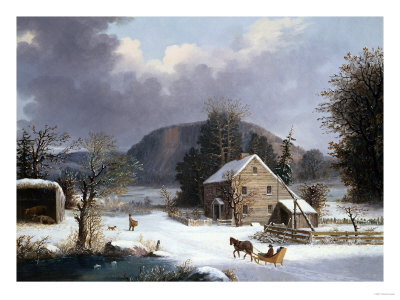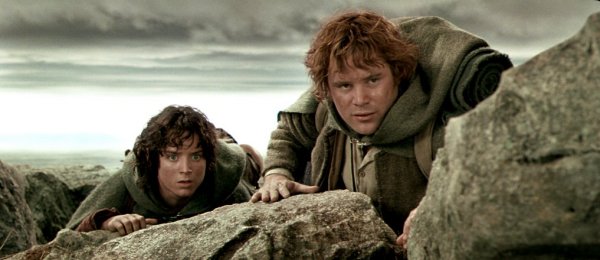
Friday, August 12, 2011
Alchemy and Meggy Swann, by Karen Cushman

Saturday, July 16, 2011
Marvelous Middle Grade Summer Reads, mid-July edition

The Shadows: The Book of Elsewhere, volume 1, by Jacqueline West, 2010.
Olive is certain something’s moving inside the paintings on the wall of the rambling old house her parents just bought. Cats can talk, and mysterious glasses let Olive enter the paintings and talk to the sad and trapped paint people inside. A fun and frightful new series beginner.

The Incorrigible Children of Ashton Place, book one: The Mysterious Howling, 2010, and book two, The Hidden Gallery, 2011, by Maryrose Wood.
These first two titles in a new series employ an original premise that successfully uses oh-so-familiar story elements in a whimsical Victorian setting and voice. Mystery, humor, and satire mix happily with sinister (yet unidentified) villains, high-minded governesses, frivolous society brides, and children actually raised by wolves. We gobbled these. In fact, my son and I squabbled over who got to read them first. The alpha wolf in our house won, naturally.

Howl’s Moving Castle by Diana Wynne Jones, 1986.
How did I miss this book? The first page was so scrumptiously brilliant I groaned with envy and squealed with delight, both together. When the Witch of the Waste casts a spell upon Sophie, an eldest daughter whose only talent seems to be making stylish hats, she turns into a ninety year old woman, and hobbles off to seek her fortune. The only place willing to give shelter to an old hag is the moving castle belonging to the notorious Wizard Howl, who is said to devour young girls. Newly old Sophie feels safe enough, and signs on as Howl’s cleaning lady. Classic Wynne Jones; this provocative collision-of-worlds tale rests solidly on fairy-tale bedrock but offers satisfying complexity, and irresistible, unforgettable characters. I’m reading a sequel now.
Wednesday, May 25, 2011
The Iron Ring by Lloyd Alexander
It so completely enthralled and enchanted me that when I finished I looked up Lloyd Alexander's home address in Drexel Hill, Pennsylvania, and wrote him a gushing letter, telling him how his book had reminded me of my childhood dream of writing children's books someday. He very kindly wrote back and encouraged me. I began devouring all the other Lloyd Alexander titles I could find, and wrote to him again. Again, he responded with friendly warmth. I won't ever forget that thrill I felt. Most readers get this phase out of their systems at age 11, but I had never written a letter to an author before.
I just finished reading The Iron Ring again tonight. I am a children's author now. Perhaps I wanted to revisit that place where the dream first reawakened. I wish I still had a little baby to hold. Instead, I was up till midnight with a fifth grader finishing a project that was assigned a month ago, and is due tomorrow. Motherhood still demands its late nights. And I can't read the novel like I did the first time. I've read enough Lloyd Alexander to recognize his trademark formula: the hapless youth with grand dreams sets out on a wild adventure with a wise, clever, beautiful (but lower-rank) female, and acquires a motley crew of wise-cracking eccentrics, talking creatures, with maybe a mystic and a heavy thrown in. Hapless youth loses all, learns humility, defeats bad guy w/o bloodying his hands, gets girl. An appealing formula, to be sure, and yet in this second reading of the novel, I find myself flinching a bit at how readily the characters (based on Indian folklore) chuck their caste system by the end. And I've received enough criticism for love-at-first-sight in my own first novel not to cringe at it now.
But for all that, I still enjoyed the book this time around, even if not in the same wide-eyed, rapturous way. I am older. I read differently. I never wanted that to happen. But if I gush less, it doesn't mean I feel less. I can feel Alexander's commitment to compassion, even if he may not see all the risks inherent in appropriating another culture's folklore. I remember the compassion with which he wrote back promptly twice to a desperate house-bound young twenty-something lactating looney and said, "I'm sure you can be a writer someday!" And I remember that bringing books into the world is a generous act on behalf of the hungry readers who'll devour them. This is the part I sometimes forget, now that I'm more in the kitchen and less in the dining room. Dreams may lose sparkle over time, but they don't have to lose their meaning.

Sunday, February 20, 2011
Ethan Frome by Edith Wharton
Ethan Frome tries to be a distinctively New England story, albeit with a decidedly particular slant on what it meant to be a New Englander. Wharton's own preface states: "…I had an uneasy sense that the New England of fiction bore little—except a vague botanical and dialectical—resemblance to the harsh and beautiful land as I had seen it. Even the abundant enumeration of sweet-fern, asters and mountain-laurel, and the conscientious reproduction of the vernacular, left me with the feeling that the outcropping granite had in both cases been overlooked." As an upstate New Yorker who now makes Massachusetts her home, I always know I've left my old home state for my new one when granite cliffs greet me just over the state line on I-90. New England has a stony spine underneath. I wonder what Wharton would think of our suburbs and strip plazas and central air today. Her "Starkfield" is a cold, stoic, frozen New England town. The landscape and the weather are a powerful presence, almost a character in their own right. The story's central problems directly relate to winter – snowstorms, blocked roads, even sledding. Starkfield seems always to be under the iron grip of snow. The entire novel, though it spans decades, all takes place in winter, as though winter was all that New England ever knew. Even the recollections voiced by townspeople almost never seem to acknowledge the existence of summer, or spring.

Ethan Frome is the subject of the story, and the unnamed narrator proclaims him to be "the most striking figure in Starkfield" on page one. I spent the remainder of my read waiting impatiently for that claim to be justified – for Ethan Frome to prove himself a worthy object of sustained interest. I believe we're meant to see him as a strong, silent type – lean and rugged, with deep inner passions – granite made human, as it were. But I couldn't quite sustain that view of him. I read him as someone with a social disorder and a crippling fear of loneliness, something we would now diagnose and treat with social skill therapy. It fits perfectly with his year spent "at the technical college in Worcester." As a graduate of WPI's rival technical college, Rensselaer Polytechnic Institute, I've known plenty of people whose moody reticence is not caused by a fascinating inner greatness, but by paralyzing shyness, plain and simple. Not so glamorous, but there it is.
Wharton's writing is as spare and economical as her hero is, punctuated with shafts of great beauty. Her sensibilities may resemble Frome's: "He had always been more sensitive than the people around to the appeal of natural beauty. His unfinished studies had given form to this sensibility and even in his unhappiest moments field and sky spoke to him with a deep and powerful persuasion. But hitherto the emotion had remained in him as a silent ache, veiling with sadness the beauty that evoked it. He did not even know whether any one else in the world felt as he did, or whether he was the sole victim of this mournful privilege." Indeed it is this aesthetic sense that does much to make Ethan Frome sympathetic and interesting.
Frome is a tragic hero, a restless mind trapped into a stultifying marriage he entered into in a rash and vulnerable moment in very young adulthood. By the end of the story the outward details of what happened are plain enough. But even after re-reading the ending twice, I still wonder, what happened? What did Miss Mattie say to Ruth Varnum? Why could Ethan have lived, if Mattie had died? What's the real state of Zenobia's soul, then and now? The author acknowledges, as does the narrator, that this is a story where you wonder right throughout whom one should believe. Every perspective on the narrative can be ignorant, or biased. Even the principal chunk of the narrative, written in third person, and supposedly pieced together and deduced by the narrator (which makes little sense, really), can perhaps be doubted. Except I'm not sure what Mrs. Wharton had in mind there, and while I understand there's a whole school of critical thought that says, in effect, "Phooey on what the author meant, the text is all we have," I still can't help feeling that Mrs. Wharton took confusion too far, or else I missed something. If it's meant to be a "YOU figure out what really happened" kind of story, then I want to chuck it out a window.
The back jacket flap of my 1986 paperback (first publication, 1911) calls it a "story of great love shadowed by tragedy." I don't call it a great love. It's infantile, and a bit embarrassing. Ethan seems wholly susceptible throughout. Not a man of heroic passions, but pitiably weak and indecisive, suggestible. He has my sympathy most in how he shoulders up under his poverty. Am I applying a moralistic judgment to his choices? I hope not. I can empathize with his plight, but it's of his own weak-willed creation. The final outcome would seem to support that sense of embarrassment. He's not even allowed a tragic hero's glorious death. Even that gets botched. Does that not perhaps make him all the more tragic? 
And yet, and yet, the very fact that I'm scowling and fussing over this story means that Wharton has done something interesting. She's challenged me, she's vexed me, and every argument that I mount against the story can itself be a reason to take another look at it. I'm reminded of the aggravation I felt at reading and critiquing The Turn of the Screw by Henry James. I didn't love the book when I read it in college, but I couldn't dismiss the superb control that created it.
For all that it bothered me, I couldn't put it down until I was done. It's a short book and a swift read. I may not race out to buy another Wharton novel (tell me if I should, please) but I often find that I learn as much, or more, from books that I don't love as I learn from books I gobble like candy. I'd love to hear thoughts from others who've read and studied the novel. Enlighten me.
Friday, February 18, 2011
The Pickwick Papers by Charles Dickens: Tracing Roots in Wodehouse & Tolkien
I could only scratch my head.
I recently read Jane Smiley’s biography of Dickens, in which she describes how The Pickwick Papers, first appearing in serialized form in March of 1836, made the young Charles Dickens an almost overnight literary sensation. I had never read the novel, so I set out to do so, despite Smiley’s warning that modern readers find the novel largely inaccessible. I can’t fully dispute that charge, but it ought not to be the case. Though long, rambling, episodic, and at times seemingly unfocused, The Pickwick Papers is still hilarious, snarky, rich, ridiculous, and enormously worth reading.
But more on that to come.
The Pickwick Papers is an early farce, and the first flexings of the literary muscle that would dominate (and partially create) the 19th Century novel, and indeed, all English prose fiction since. Even if modern readers may overlook Pickwick, it’s clear to me that generations of authors have known and loved the Pickwick Club, and it has sent tendrils of influence into modern works. Below are just two I noticed.
The first is a clear line connecting Pickwick to the huge catalog of farces by the comic master, P.G. Wodehouse. Wodehouse’s genius is undiminished in my eyes by the discovery that his formula for success had a precedent in Pickwick. His most successful Bertie and Jeeves novels provide the best illustration.
Both Pickwick and Wodehouse follow a band of bungling gentleman bachelors around the English countryside. The characters are useless but endearing, bickering but loyal when tested. They roam from house to country house, falling in love and spreading havoc. The main character, always aloof from matters of love, is nevertheless far from immune to getting into embarrassing and compromising scrapes with women, including prompting a breach of marriage contract suit (something perennially threatened in Wodehouse’s comedies). The main character is wholly dependent on his loyal, streetwise, practical commoner servant. Sam Weller and Jeeves are quite different personalities, but both are memorable originals, and both, in fact, make their series. Both Jeeves and Sam Weller provide needed cohesion for their respective episodic adventures. The Pickwick Papers’s serial sales began to soar when Sam Weller entered the narrative.
Both Dickens and Wodehouse employ a superabundant cast of memorable characters and recognizable types. Both authors display an affectionate regard for their (anti-) heroes’ follies. The Pickwick Club is a roaming pack of innocents, led by Mr. Pickwick, whose genteel manners may be more polished and mature than his companions’, but whose wisdom isn’t much greater than that of his younger charges. They’d all be lost in the woods still were it not for Sam Weller. The same could be said for Bertie Wooster and Jeeves.

Let’s look at another pair that I can’t help thinking traces its roots to Mr. Pickwick and Sam – Frodo Baggins and Samwise Gamgee. I still have Tolkien on my mind from my January rereading of Lord of the Rings, but in Frodo and Sam I couldn’t help noticing the replayed dynamic of a master who is painted as noble of character yet greatly in need of the practical, worldly-wise, common sense service of his loyal Sam in order to survive, that I saw in The Pickwick Papers. The bond between Frodo and Sam caught my attention more on this recent read, and puzzled me. I had nothing more than Tolkien’s word and Bilbo’s money to persuade me why Frodo deserved to be “Master,” and Sam his loyal subservient, yet that loyalty and that gulf of rank and superiority between them was acknowledged, understood, and even revered (by Sam) throughout. By contrast, the deep affection between Mr. Pickwick and Sam Weller rang much more believably to me, and yet I wonder to what extent all such master-servant relationships in British fiction are idealized, perhaps, as a means of attempting to reconcile a fundamentally unequal social structure?

Be that as it may, Sam Weller is endlessly endearing, his spontaneous similes are delicious, and I wish I had Mr. Pickwick for a friend. This is one way Dickens shines for me, especially in his comic novels. His affection for his characters is ever-apparent, no less so for his allowing them to make convivial nincompoops of themselves. And the wit that pervades his narrative voice is a fountain that never stops bubbling and spilling over the sides. No wonder the book made 24-year old Dickens a star.

All this said, The Pickwick Papers isn’t a perfect read for time-pressed readers in 2011. It’s LONG. It’s episodic. It meanders at first, and ramps up slowly. It takes a bit of time to hit its full comic stride and confidence (cue Sam Weller). Before long the affectionate irony of the colorful narrative voice is in full bloom, a source for constant laugh-out-loud delight, but for me at least, it took some chapters to get my bearings. Again, thank heaven for talented audiobook actors. Mine was narrated by Patrick Tull, and published by Recorded Books, and I cannot imagine a greater talent to bring all the characters to life and to add so much humor and nuance to the production.
So if you’ve got 36 hours of drive time to spare, find The Pickwick Papers by Charles Dickens and narrated by Patrick Tull. Give yourself time. It’s okay if your mind wanders now and then. Sam Weller will get you where you need to be, on time, well dressed and fed, with a pint in your fist and a guinea in your pocket. I grieved when it ended, and smiled for a long time after.
Saturday, January 29, 2011
North and South by Elizabeth Gaskell

For three days I’ve been the hopeless prisoner of Elizabeth Gaskell’s novel North and South (1855), presented in audiobook format by BBC and superbly narrated by Juliet Stevenson. It’s 18.3 hours long. Now that it’s done I’m pining. I feel adrift, severed from scenes where my imagination belongs.
North and South is a romance set during the Second Industrial Revolution in Victorian England, and “north” and “south” refer to regions of England which interpreted England’s changing society and economy quite differently. I wonder how Elizabeth Gaskell escaped my knowledge all these years when she and I could have been such friends.
I presume Mrs. Gaskell knew her Jane Austen novels intimately. Comparison with Pride and Prejudice is inevitable. Both Pride and Prejudice and North and South bring two proud, stubborn, unlikely lovers with starkly different backgrounds into each other’s orbits. Paragons of manhood and irresistible women meet, sparks fly, what’s not to like? The female protagonists are not beautiful at first, but ultimately revealed to be utterly bewitching. Good, good, a well-known convention; every romance reader’s inner fantasies are thus far stroked. Both heroines are notably braver, cleverer, and more sensible than their flighty, shallow female contemporaries. Better still. In both stories, strong aversion and strong attraction do battle; impetuous proposals are prematurely made and indignantly refused, ushering in agonizing prolonged periods of awkwardness, introspection, re-examination, stiffness, self-doubt, and finally … whatever outcome the author had in mind. Relinquishing pride and changing one’s mind are fundamental to character arcs in both books. The outer shape of both romances is obviously similar.

But Pride and Prejudice is more comical, with a sharp satirical wit, and it concerns itself mainly with manners, money, and marriage among turn of the 18th Century aristocracy and gentry. North and South is a more earnest book, with obvious social reform sensibilities. If Elizabeth Bennett’s charms are chiefly her quick wit and her fine teeth, Margaret Hale’s are her lofty ideals and her limpid eyes.
North and South invites its readers to scrutinize shifting class boundaries in the changing economy of Industrial Britain. The novel acquaints itself with labor unions, strikes, riots, the volatile markets for raw and finished goods, squalor, suicide, industrial pollution, public education, and employee relations--scarcely subjects for Austenian salon novels that only concern themselves with laces, the social season, and who’s wintering at Bath. From our modern vantage point, with our experience of evolved labor laws and social services, as well as the dangers of reckless capitalism and pollution, Gaskell’s dinner party discussions of industrial ethics seem quaint and rustic, and at times misguided, but for her time, the debates reveal both an idealistic embracing of the new economy (why can’t a merchant be a gentleman?) and a nuanced, cautionary treatment of unrestrained industry and pollution. Gaskell’s answer to the master-laborer conundrum seems to be a genteel sort of master who listens to workers, respects them, and considers their quality of life – an image redolent of idealized manorial feudalism, with its reciprocal responsibilities, and everyone content whilst the system hums smoothly. At the same time, she argues in favor of a more inclusive and upwardly mobile model of British society than manorial feudalism ever allowed.
Morality and faith can’t be overlooked in the workings of the novel. The book’s significant events are set in motion when Margaret’s father, a country parson, admits to a crisis of personal doubt and leaves the Church of England, thereby assuaging his conscience but thrusting his family into poverty. A major turning point in Margaret’s own story is her moral crisis surrounding a lie she told in order to protect someone’s life. The extent of her guilt and anguish might mystify modern readers who might weigh a life against a lie in the moral scales and see no problem with Margaret’s choice, but we need to remember the absolutism of Victorian morality to fully understand Margaret. Mr. Thornton’s integrity becomes the deciding argument in his favor as both a potential lover and a gentleman, and Margaret is only ready to embrace (ahem) him once she has performed an inner penance for her sin. Gaskell’s character study of pride brings both her lordly main characters to a place of humility more morally and religiously colored than the humility Mr. Darcy and Miss Bennett acquired, which was essentially social. Denominational faith matters in this novel as well, and we observe characters expressing dismay at others’ non-orthodoxy, yet the text seems to me fairly liberal and tolerant in its acceptance of religious Otherness, from Mr. Hale’s lapsed Anglican non-belief to Frederick’s newfound Catholicism to Bessie’s impassioned Methodism.
Modern readers may face a few hurdles in appreciating this novel. For my part, I’m extremely glad I heard Juliet Stevenson’s audiobook performance before reading the novel. Her talent with dialects, and her thoughtful creation of each character made them more sympathetic than I might otherwise have found them. 21st Century readers may share some of my impatience with Margaret initial passionlessness, and her passivity in the second half of the novel, though I remind myself that a series of devastating losses may indeed have thrust her into a paralyzing depression, and in any case, inertness was a culturally familiar role for gentlewomen to play. At least Margaret does look inward and rebuild herself (and start to blush now and then). Early in the novel she was a stronger, more decisive (if unromantic) character. Modern readers may also feel some frustration that Margaret relies so much on men to make needed arrangements and communications for her, and that she lingers on for months under clouds of unresolved misery that a single written letter could have cleared up. But letters do not romantic scenes enable, and perhaps we can be generous and attribute her reticence to dignified reserve. I’m glad that Margaret asserts her independence (economic and spiritual) by the end and is free to act as her own woman in finally rejecting old class distinctions and choosing her own entrepreneurial and matrimonial happiness.
If I’ve analyzed and chopped the novel to death, thereby stripping it of its joys, let me make myself quite clear: I was entirely captivated by this story. I forfeited significant sleep for it. I fretted until I knew the ending. I’ve reheated and re-eaten the ending and other significant scenes many times since. I’m somewhat fearful of renting the recent miniseries, though I’ve heard good things about it, lest I destroy my own image of the people and places. (Tell me if I should relent and watch it anyway, please!) I can’t wait to spend more time with Mrs. Gaskell’s works. And my crush on a certain figure in the novel will be a guilty pleasure for many rereads to come.

Friday, January 14, 2011
Tolkien: It’s About the Journey. Setting, language, society, and race in The Lord of the Rings trilogy.

My cat, by instinct, knows when she needs to gnaw on my houseplants to soothe her troubled belly, and sometimes I, in much the same way, know instinctively what I need to read to soothe a troubled soul. Over the holidays I needed rest, and a good story to take my heart on vacation. My hand reached for The Hobbit, despite a tall bedside stack of new books waiting to be read, and I plowed straight onward through the Lord of the Rings trilogy.
I’m a different traveler each time I pass through Middle-earth. I pay less attention now to landscape and geography – I’ve already paid my dues to the maps of Mordor and Gondor.
It’s a travel story. The geography is a character, and by golly, to Tolkien at any rate, place details matter. I wonder what percentage of detail of every crag and bluff and outcrop would have been struck by the red pen of modern editors, not to mention the seven different names in three different dialects for each leaf, mound, tower, or Numenorean. But lest we criticize, where would modern fantasy be today without Tolkien in the first place? The landscape, and the language that arises from it, mattered to Tolkien, and not merely intellectually. (He was a noted philologist and linguist.) Desecration of the natural world to feed the maw of progress was one of his chief concerns, as he states clearly in his prologue, and as he illustrates plainly in the penultimate chapter, “The Scouring of the Shire.”
The “high” fantasy language, the over-embroidered speech, is both one of the great nostalgic comforts of reading Tolkien, and at times one of its barriers. My older attention span is more fractured, so the language can chafe at times, like a granule in my sock, but not enough to justify removing favorite socks. (That analogy is so reekingly bad, I just have to leave it in.) Language, just like scepters, crowns, and garments of rank, are outward signs and tokens of inner nobility and greatness in Tolkien’s well-ordered world. The series is a love song to a dying hierarchical notion of English society, as reckless industry and unlearned democracy threatened to topple all that was ever sweet and comforting about traditional English life. Or so, I think, did Tolkien feel. And he wasn’t alone. C.S. Lewis, T.H. White, and Kenneth Grahame, and countless other British fantasists sang the same love song in their own tune.
It’s harder now to reconcile myself to Tolkien’s treatment of race/color and gender. Thank heaven for Galadriel and Eowyn who raise the Girl Power Quotient from zero to, er, not-quite-zero. Skin color and purity of bloodline as tokens of greatness … the obvious slant against “swarthy” and even “Black” minions of the Dark Lord must be at least a partial product of Tolkien’s times. Perhaps this is merely the mythology of Middle-earth, with no reference to our world, but I think not; the allusions are too many and too obvious. The racial purity that places Aragorn on the throne feels much like the creed of Voldemort’s Death Eaters now. But it wasn’t meant to be, and Tolkien’s heroes didn’t feed on death nor practice genocide. Mercy, rightful governance, and freedom to live and let live mattered to him. Some of his heroes, hobbits for one, and Wild Men of the woods for another, seem absolute mongrels in contrast to the Elfstone, but they get their moment of heroism too.
Tolkien wrote a story of high heroism, of sacrifice and miracles, of an age when despite desperate odds, hopelessness and terror, a generation mounted up its courage and fought on through dark night to the tide-turning at the dawn. Again and again this happens – at Helm’s Deep, on the fields of Pelennor, in the mines of Moria, even in Bilbo’s encounter with the trolls. Stay defiant in the face of destruction, and hold on until the morning. It’s a tale of triumph, yet also it’s the tale of the dying of the Third Age, when all that was holy and magical in Middle-earth passed away, the good and the bad mingled. To rid the world of Sauron, Gandalf had to leave.
Tolkien’s generation, rightly called The Greatest Generation, has all but passed away, and if a man who fought in WWI and lived through WWII is not entitled to weave such a story as this one, I’d like to know who is. But his age, with its courage, and its fatal misconceptions, is fading away. The Greatest Generation helped stop The Third Reich and interred Japanese Americans. They are our fathers, grandfathers, uncles; our mothers, grandmothers, and aunts. They deserve our forgiveness for their sins and errors, just as we will one day need our children’s forgiveness for our blindness and waste and greed. But forgiving does not require us to adopt their prejudices.
I reached for Tolkien because I needed a zap of idealism along with the comfort of a high adventure. I needed to borrow his belief in inner nobility, greatness, and courage, even as I set aside his notions of how such greatness is bred and fostered. And mostly, I think, I needed to be carried away to another world for a good long stretch, such as only Tolkien, with his thousand characters, geological micro-detail, and songs in Elvish could promise.
